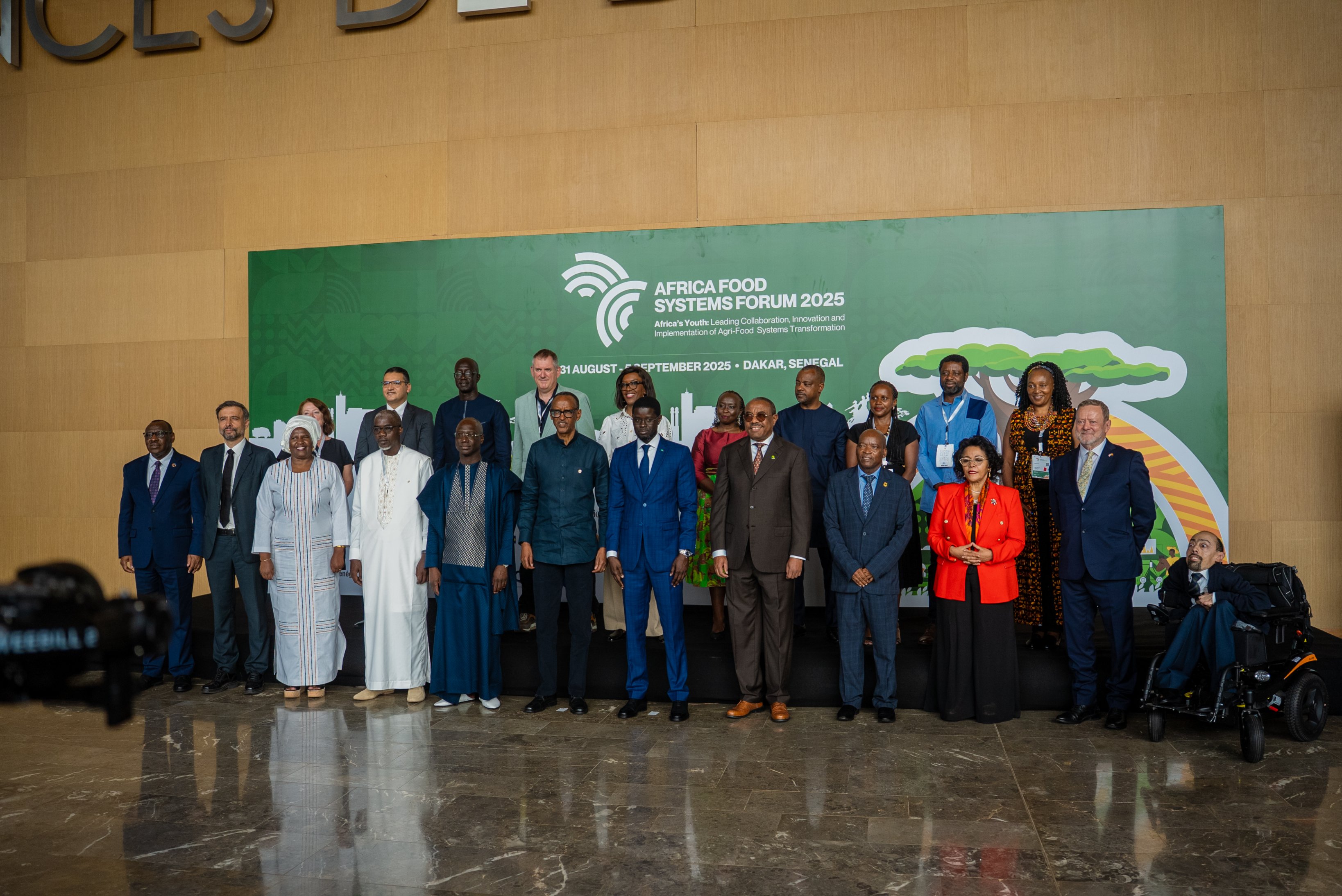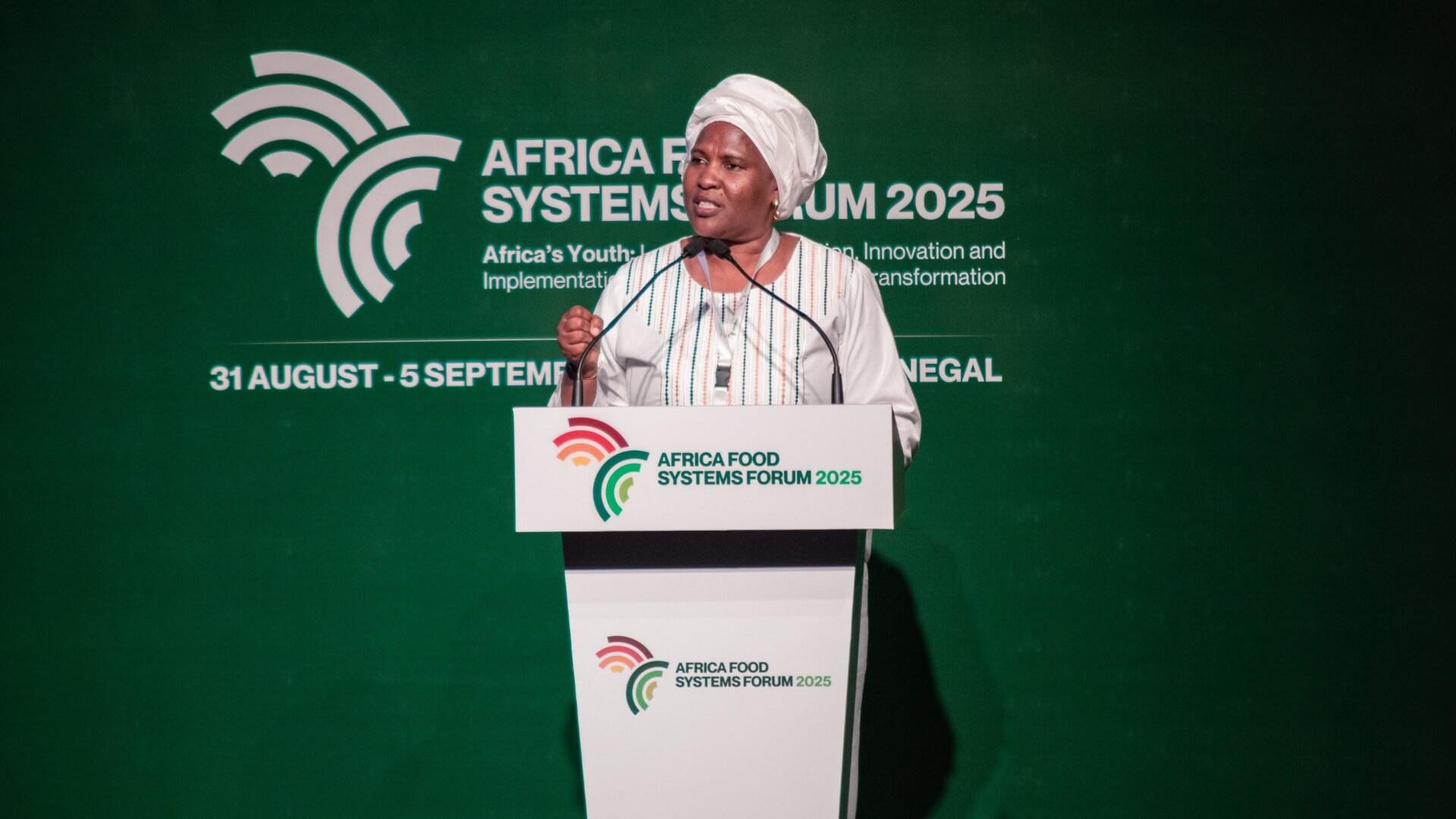From shrinking poverty to booming output, Africa’s farms are a global beacon of hope. Yet too many still go hungry. The new report challenges us all: Can this century be Africa’s moment to feed itself and the world?
African Farmers Drive Historic Gains, but Deep Challenges Remain
Dakar, Senegal — When thousands of delegates gathered at the Africa Food Systems Forum 2025, one message rang clear: African agriculture has made historic gains, but real transformation is still ahead.
The newly launched Africa Food Systems Report 2025, led by the Alliance for a Green Revolution in Africa (AGRA), captures a continent at a critical crossroads—showing both hard-won progress and the urgent need for deeper reforms to build a self-sustaining food future.

Growing Against the Odds: Signs of Progress
Over the past three decades, Africa has achieved striking improvements against long-standing challenges. Extreme poverty rates have fallen sharply—from 60% in the 1990s to just 35% today.
Child health outcomes have also advanced, with stunting dropping from nearly 40% to 30%. Life expectancy has risen by more than 14 years.
Meanwhile, agriculture itself has been a driver of resilience: since 2000, the sector’s annual output has grown by 4.3%, the fastest pace of any region globally.
These advances reflect the determination of African farmers, entrepreneurs, scientists, and policymakers who have pushed for homegrown solutions.
As AGRA President Alice Ruhweza notes, “Africa has the talent, the resources, and the vision to feed itself and the world… What we need now is the commitment to work together, at scale, to turn potential into lasting prosperity for all.”

The Disconnect Between Production and Hunger
Yet, despite record harvests, the continent continues to face deep food insecurity. An estimated 282 million Africans remain undernourished, and one in three children suffers from stunting.
For many households, a healthy diet is simply unaffordable, consuming up to 70% of income in some regions and leaving more than 80% of people unable to purchase balanced meals.
After years of progress, the undernourishment rate rebounded to 19% in 2022, driven by climate shocks, conflict, and global disruptions.
Structural weaknesses compound the problem. Food loss is severe, with up to 40% of crops never reaching markets due to poor transport, storage, and processing infrastructure.
Irrigation, critical for climate resilience, covers only 7% of African farmland compared to the global average of 20%—leaving farmers vulnerable to erratic rainfall and droughts.
A System in Need of Bold Shifts
The report highlights four critical domains where Africa’s food system requires transformative change.
Nutrition and Health: While food availability has grown, diets remain skewed toward starchy staples and lack sufficient diversity.
Only one-third of women of reproductive age meet minimum dietary diversity standards. At the same time, urban areas face rising consumption of processed foods, fueling obesity and diet-related diseases.
Youth and Jobs: With 60% of Africans under 25, agriculture must create dignified employment and entrepreneurial opportunities for young people. Harnessing their innovation and energy will be essential for modernizing the sector and driving inclusive growth.
Policy and Finance: Investment in agriculture remains well below ambition. Most governments allocate less than 2% of their budgets to the sector, far short of the 10% target set by the Comprehensive Africa Agriculture Development Programme (CAADP).
Official development aid is declining, underscoring the urgent need for domestic resource mobilization and private sector investment.
Infrastructure and Technology: Weak logistics mean that food spoils while people go hungry. Expanding cold storage, electricity access, and affordable transport networks is essential.
Meanwhile, digital tools and climate-smart innovations—from mobile agronomy services to solar-powered irrigation—offer opportunities for rapid progress if scaled effectively.
Transformation Requires Systems Thinking
The Africa Food Systems Report stresses that incremental gains are no longer enough. Breaking cycles of hunger and vulnerability will demand bold, systemic reforms—ranging from stronger governance and infrastructure investment to national nutrition initiatives such as school feeding programs.
That urgency resonated across the Dakar forum, where leaders showcased homegrown innovations and announced new partnerships.
The event served as a marketplace of both ideas and action, reinforcing the potential of regional cooperation to influence policies and catalyze significant private sector deals.
Conclusion: Africa’s Moment of Decision
The Africa Food Systems Report 2025 is not just an audit of progress; it is a call to action. Africa now stands at a pivotal moment, with booming markets, vast resources, and the world’s youngest population.
Whether its leaders, businesses, and citizens seize this opportunity will determine if history judges today as the tipping point—when Africa not only fed itself more sustainably but also began to feed the world.
Leave a comment
Your email address will not be published. Required fields are marked *





